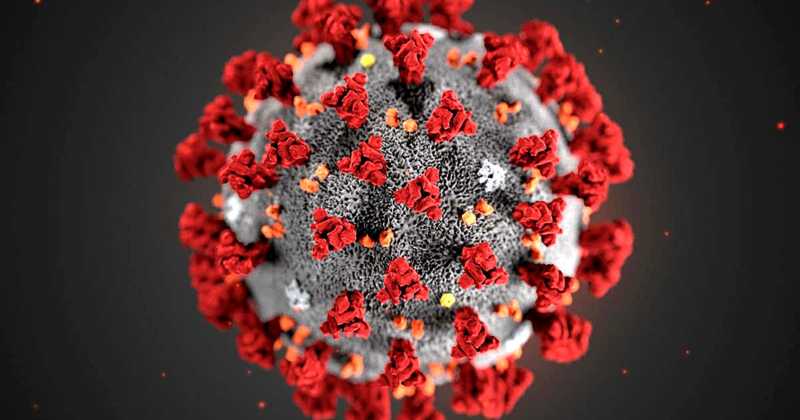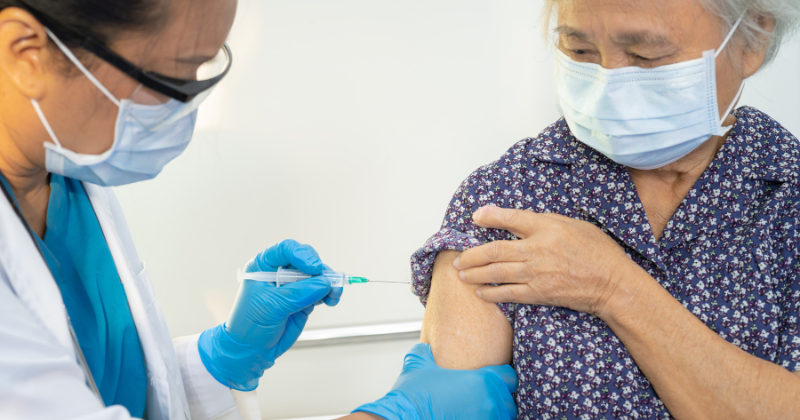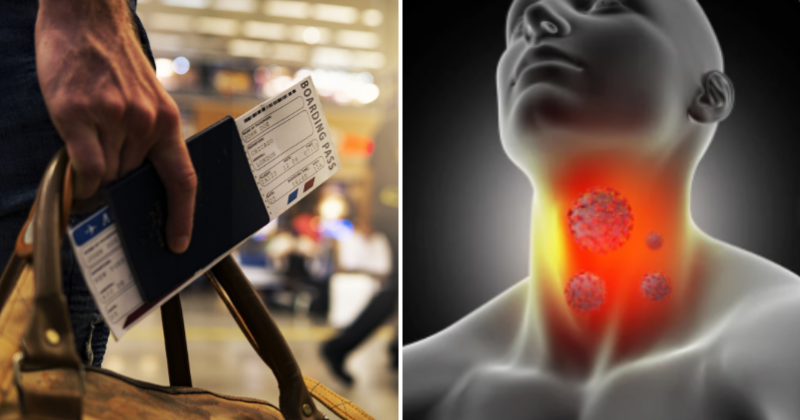While the holidays are a time of happiness and celebration, it is also when respiratory viruses are most likely to spread. It is essential to put your health first and take preventative measures to protect your loved ones as families gather to celebrate.
This guide will review feasible actions and successful tactics to ensure a safe and happy holiday season.
Jump to
- Who gives expert advice?
- What are the precautions to take to save yourself from respiratory viruses?
- Wear your mask everywhere
- Avoid crowded spaces
- Keep your hands clean
- When do Americans plan to travel?
- Where is the spread?
- How can vaccines help?
Who gives expert advice?
Dr. Peter Chin-Hong, an infectious disease specialist at the University of California, San Francisco, said COVID-19 and respiratory syncytial virus also spread because many Americans travel by plane this Thanksgiving week. .
They will also be in close contact with infected people and touch common contaminated surfaces.
What are the precautions to take to save yourself from respiratory viruses?

Credit: Canva
Wear your mask everywhere
Even after local governments relaxed COVID-19 regulations in 2023, many Americans dropped the habit of wearing masks. According to Chin-Hong, wearing a mask at the airport and on public transportation remains one of the best ways to stop the spread of disease.
Even on flights with adequate ventilation, Chin-Hong says, masks should be worn as an extra precaution against sneezing and coughing passengers.
Avoid crowded spaces
Chin-Hong advises against congregating in crowded areas for Thanksgiving dinner or gatherings with old friends.
Keep your hands clean
Chin-Hong added that washing hands is another healthy habit that can be adopted during the holidays. The CDC says that hand sanitizer that contains at least 60% alcohol can kill many germs if soap and water are not available.
As a general rule, you should refrain from touching your mouth, nose, or eyes to avoid spreading germs.
When do Americans plan to travel?

Credit: Canva
According to theory, the only way to ensure you don’t contract a virus while on vacation is to not travel at all, but most Americans can’t afford that, according to Chin-Hong. According to AAA’s forecast, approximately 55 million people are expected to travel between the Wednesday before Thanksgiving and the Sunday following the holiday.
The Transportation Security Administration estimates that on the Sunday following Thanksgiving alone, nearly 3 million travelers are expected to pass through airports across the country. But not everyone will take to the skies. More than 49 million Americans, or most, will travel by car.
According to Chin-Hong, a vehicle is still an enclosed space, even though some people may consider it safer than wandering around an airport or sitting on a plane.

Credit: Canva
According to Chin-Hong, many Americans have become indifferent to circulating viruses.
According to KFF’s recent survey, about 75% of adults say they are “not too worried” or “not at all worried” about contracting COVID-19 during the holidays, and 2/3 say they are not worried about infecting their loved ones. . them.
According to Chin-Hong, testing for COVID-19, flu or RSV is a good option that should be used more frequently if you are concerned about the spread of a virus.
This is especially true if you are visiting young, older, or at-risk family members, such as those with weakened immune systems or pregnant women.
Where is the spread?
After declining during the COVID-19 pandemic, seasonal flu activity is again on the rise in most of the country. The CDC reports that during the week ending November 11, there was high flu-like activity in Puerto Rico and several southern US states, and Louisiana experienced extremely high flu activity.
This week, 3.5% of doctor visits were caused by respiratory illnesses, including fever combined with cough or sore throat.
Meanwhile, CDC data shows cases are increasing in Western states such as Alaska, New Mexico, California and Texas.
How can vaccines help?

Credit: Canva
Experts emphasize that now is the right time for everyone who qualifies to get vaccinated, as COVID-19, influenza and RSV vaccines are now available for the first time.
The CDC recommends that everyone over six months of age get vaccinated against COVID-19 and the flu. Retail pharmacy chains like CVS and Walgreens offer both; you can even get them simultaneously.
According to Chin-Hong, very young children should have received the flu vaccine last month. Parents should, at a minimum, vaccinate their children if they have not received the flu vaccine.
The CDC said Thursday that more than 77,000 additional doses will be sent “immediately” to hospitals and doctors’ offices, although quantities are currently in short supply.
There are two RSV vaccines available for people age 60 and older, and the CDC recommends getting them as soon as possible.

Credit: Canva
Additionally, local health clinics, pharmacy chains and other retailers sell the vaccines. According to Chin-Hong, keeping up-to-date vaccination records can ease the burden on hospitals, many of which battled RSV, flu and COVID-19 last year.
According to the CDC, nearly a third of American children and more than a third of adults have gotten a flu vaccine this year. In contrast, approximately 14% of older adults ages 60 and older have received the new RSV vaccine, and 5% of children and adults have received the COVID-19 vaccine.
what do you think about it? Let us know in the comments.
For more trending stories, follow us on Telegram.
Categories: Trending
Source: vtt.edu.vn
